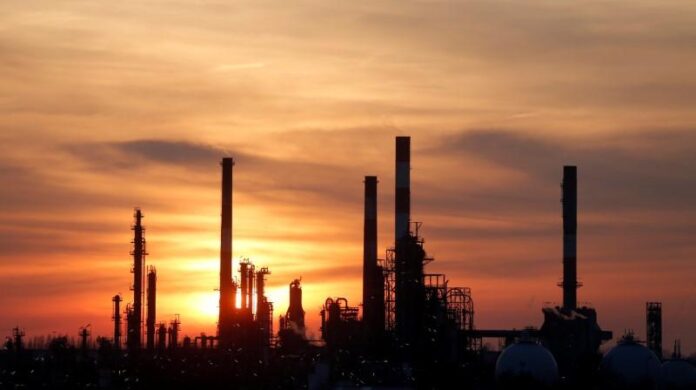MOSCOW: A new OPEC+ deal to balance oil markets might be possible if other countries join in, Kirill Dmitriev, head of Russia’s sovereign wealth fund said, adding that countries should also cooperate to cushion the economic fallout from coronavirus, Reuters reported.
A pact between the Organization of the Petroleum Exporting Countries and other producers, including Russia (known as OPEC+), to curb oil production to support prices fell apart earlier this month, sending global oil prices into a tailspin.
“Joint actions by countries are needed to restore the (global) economy… They (joint actions) are also possible in OPEC+ deal’s framework,” Dmitriev, head of the Russian Direct Investment Fund (RDIF), told Reuters in a phone interview.
Dmitriev and the Energy Minister Alexander Novak were Russia’s top negotiators in the production cut deal with OPEC. The existing deal expires on March 31. “We are in contact with Saudi Arabia and a number of other countries. Based on these contacts we see that if the number of OPEC+ members will increase and other countries will join there is a possibility of a joint agreement to balance oil markets.”
Dmitriev declined to say who the new deal’s members should or could be. US President Donald Trump said last week he would get involved in the oil price war between Saudi Arabia and Russia at the appropriate time.
Dmitriev also said that a global economic crisis was inevitable as global debt to the world’s gross domestic product had risen to 323 percent as of now from 230 percent at a time of the previous economic crisis of 2008. The virus just triggered it, he said. “Efforts to restore relations between Russia and the United States are now as important as ever, we will take all the efforts our side and hope the United States will also understand that this is necessary,” he said.
Meanwhile, global oil storage capacity is under intense pressure because of booming output from Saudi Arabia and the United States while the coronavirus outbreak slams the world economy and crude demand. The OPEC and Russia had cooperated closely since 2016 to curb production, support prices and protect their precious revenues.
That all changed earlier this month when Saudi Arabia launched a vicious price war with Moscow, after OPEC and non-member Russia failed to clinch an output-cutting deal to curb the market impact of the deadly COVID-19 outbreak.
The perfect storm sent oil prices collapsing to their lowest levels in almost two decades, with London Brent North Sea hitting $24.52 per barrel and New York´s WTI crude striking a nadir of just $19.46.
However, despite evaporating demand, production has continued apace — and the resulting oil is often destined for overstretched storage facilities around the world, according to industry experts. “We knew that surging output from OPEC members would place upwards pressure on crude oil stockpiles,” Petromatrix analyst Olivier Jakob told AFP. “Yet this phenomenon clearly accelerated… with the collapse of oil demand.” As a consequence, the market remains awash with crude in storage on land and in container ships.
And the estimated level of total oil stockpiles has now overtaken the previous peak set in early 2017, according to data from energy sector intelligence firm Kpler, which warns stocks continue to swell. Michael Tran, energy strategist at RBC Capital Markets, predicts the global surplus could now reach 10.6 million barrels of oil per day (bpd) in the second quarter of the year. “Global storage is currently 66 percent utilised and nearly 1.7 billion barrels of unused capacity remains,” Tran said.
“By our estimation, inventories may challenge global storage capacity limits late this year or early next.” Kerosene or jet fuel — which is refined from crude — is often the first oil product to suffer because aviation demand tends to falter first in a weak global economy.
The aviation sector has been devastated by coronavirus, which has forced airlines to axe most flights owing to a combination of travel restrictions and disappearing demand. “Among the various fuel sectors, we expect jet fuel to be hit the hardest,” added Rystad Energy analyst Bjornar Tonhaugen.
“We now see jet fuel demand falling by almost 20 percent year-on-year, or by at least 1.4 million bpd. Last year´s demand for jet fuel was seen at about 7.2 million bpd. “Storage tanks, especially for jet fuel, will reach (their maximum level) possibly .. during April.”
SEB analyst Bjarne Schieldrop painted a similarly gloomy picture of the outlook for oil storage, as crude prices languish close to recent lows with no sustained recovery yet in sight. “We are now looking at surplus in the second quarter of 2020 at a scale that we have never seen before,” he said, adding that with people now sitting at home in confinement that demand could fall even more. “It means that storage capacities will be breached. The oil price will then have to crash to a level where production more or less immediately is shut down. This now seems to be where we are heading,” Schieldrop warned.




